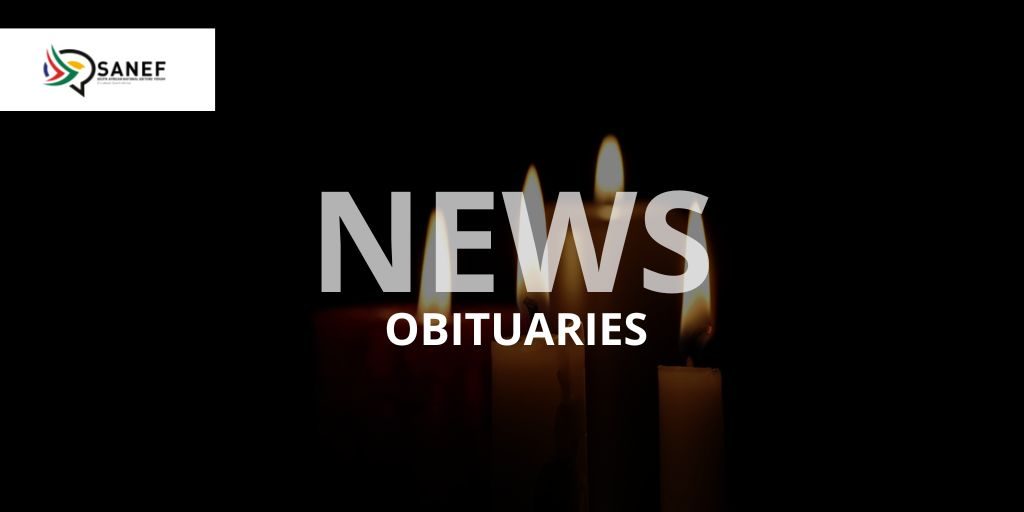SANEF is saddened by the death of senior SABC journalist Jake Mokoma and concerned about issues affecting journalists and our industry as a whole
The South African National Editors’ Forum (SANEF) is deeply saddened by the untimely passing of journalist Jake Mokoma (55) on Tuesday night. Jacob Kesitiloe “Jake” Mokoma died in his home town of Mahikeng, two weeks away from his 56th birthday. Our condolences to his family and friends.
“The life that Jake lived can be summed up in how he devoted his time to the journalistic trade, he was sincere and earnest. We remember Jake as a man who played a critical role in the production of the SAFM Current Affairs’ After 8 Debate, later known as the Forum@ 8 which became South Africa’s agenda-setting discourse platform,” said SAFM Executive Producer and colleague Aubrey Setjie.
Jake’s career began in the late 1980s working as a field reporter for the Boputhatswana Broadcasting Corporation (BOP) TV News. Later in 1994 he went to work for the Worldwide Television News as a researcher/reporter covering SA’s first democratic elections in 1994. In 1998, he joined eTV News and focused on human interest stories. Having spent over 15 years working for SAFM Radio Current Affairs, Jake finally returned to his roots and joined the Mahikeng newsroom in October 2018.
Journalists barred access to Magistrates Courts and related issues
In other developments, SANEF is concerned about the way journalists are being treated at magistrates’ courts across the country. This week we have been inundated with complaints at courts hearing key cases. These include the following incidents:
- Journalists were prevented access to the Umzimkhulu Magistrate’s Court on Monday where murder charges against the ANC’s Harry Gwala District Mayor Mluleki Ndobe were provisionally withdrawn;
- Journalists were barred from entering the Pretoria Commercial Crimes Court in the case involving self-proclaimed prophet Shepherd Bushiri;
- In the Randburg Magistrate’s Court journalists were asked to switch off their cell phones during the case involving Duduzane Zuma; and
- In the Johannesburg Magistrate’s Court on Monday in the case of Kwaito musician Pitch Black Afro, journalists were banned from taking their cell phones, video cameras and note books into court.
Last year SANEF was inundated with various complaints affecting journalists including journalists being attacked in court in full view of the court orderlies and also being barred from certain magistrate’s courts.
SANEF met with the Magistrate’s Commission in 2018 and made several proposals to make sure that the lower courts live up to the Constitutional principle of open justice. The Commission promised to draft a letter for journalists outlining the media’s right to access the courts. We are still waiting for the finalisation of the letter. SANEF is following up on this issue.
Journalist safety issues
On matters of journalist safety, we again call on all stakeholders in politics, the public and private sectors to respect the role of the media. In recent weeks journalists have come under attack at crime scenes, at service delivery protests and have also been attacked verbally and emotionally by certain high political leaders and their supporters.
Also, SANEF notes that there have been increased attacks on local media. Caxton Local Media has noted the following:
- Police officials chasing journalists from scenes in public areas when they seek to perform their newsgathering duties; and
- Complaints of police officials threatening to confiscate journalists’ cameras and to arrest them for taking photographs on scenes.
It has been 15 years since the South African Police Services (SAPS) Standing Order 156 was issued. SANEF would like to request that Standing Order 156 be circulated among police officials once again. We trust that a refresher on the contents will enable police to accommodate journalists as is legally and ethically required.
Finally, we note the public spat and harassment that is being levelled at veteran journalist Raymond Joseph by the National Lotteries Commission (NLC). We are concerned that instead of resolving the matter internally, the NLC is choosing to fight Joseph publicly.
We call on the NLC and any person, organization or political party that feels genuinely aggrieved by a story to follow the correct channels to address their grievances. In the case of the print and online media such persons can level complaints with the Press Ombudsman and in case of broadcast media – radio and television – the Broadcasting Complaints Commission of South Africa (BCCSA).
SANEF will continue to champion the cause of independent journalism, to support journalists under threat in our country. We remain concerned that the attacks on journalists are escalating and we will do everything possible to protect the freedom of the media and journalists especially as we approach our all-important May 2019 national elections.
SANEF, in association with the Committee to Protect Journalists (CPJ), has initiated a 24-hour hotline initiative for members of the media to report on threats and / or intimidation that journalists receive during the 2019 Elections Period. See link to the reporting tool: https://sanef.org.za/elections-2019/#reporting
For more information contact:
Mahlatse Mahlase – SANEF Chairperson 083 399 2852
Kate Skinner – SANEF Executive Director 082 926 6404
Mary Papayya – Chair: SANEF Media Freedom 082 379 4957
Moipone Malefane – SANEF Secretary General 082 772 5861
Sbu Ngalwa – SANEF Media Freedom 073 404 1415



